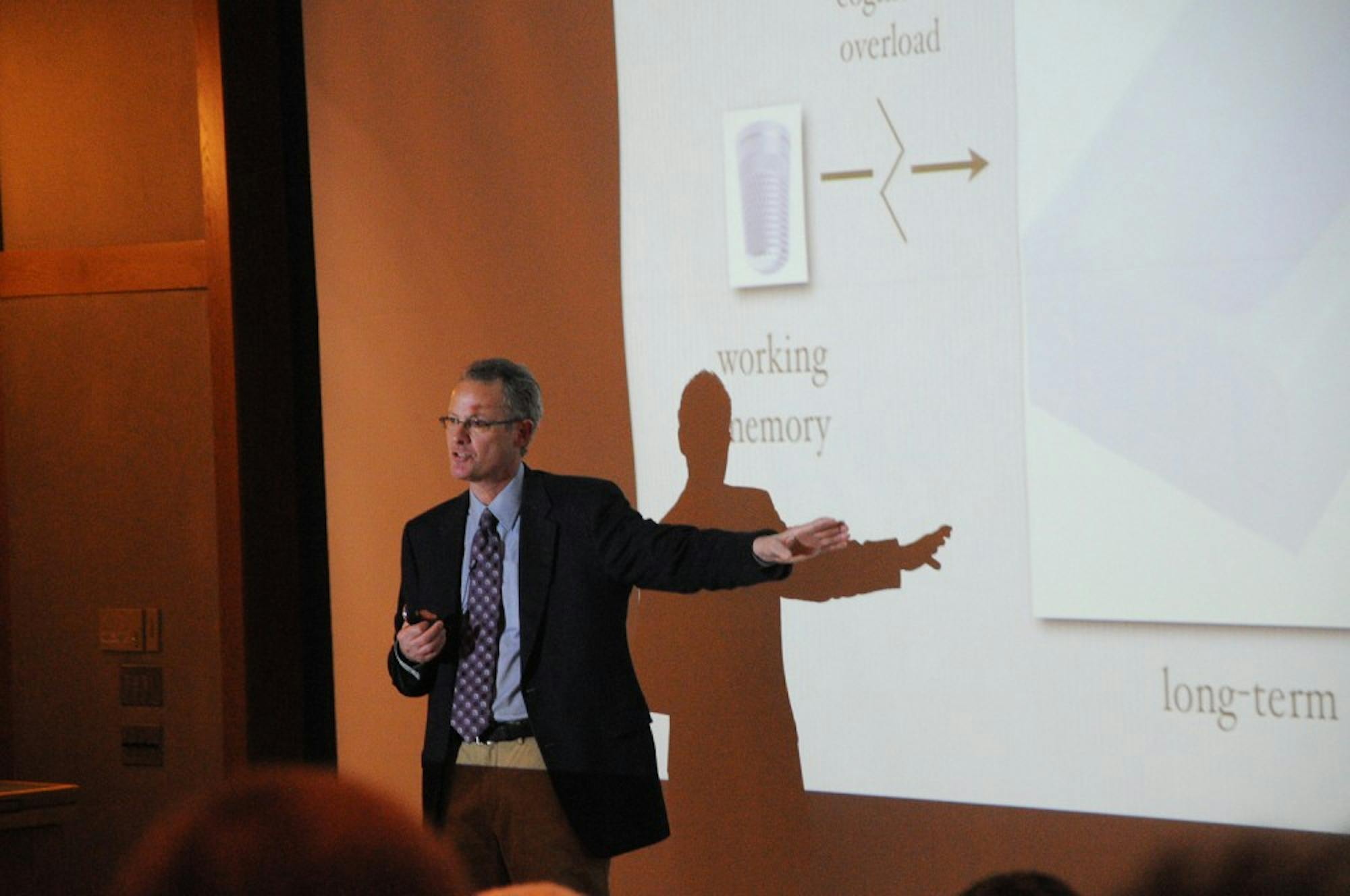Every day, the average American spends over eight hours looking at a screen, but only 20 minutes reading from a print source, Pulitzer Prize finalist Nick Carr ’81 said in a lecture Monday evening. Carr, author of The New York Times bestseller “The Shallows: What the Internet is Doing to Our Brains,” examined society’s growing dependence on technology and encouraged audience members to reexamine technology’s influence on their daily lives.
Carr was inspired to explore the connection between cognition and technology after he realized that even when he was not browsing the Internet, his mind behaved in a similar way as when he was.
“My mind didn’t seem to want to get focused,” Carr said. “I’d get a couple of paragraphs into a book or an article and have a desire to search the web or check my email.”
Although the Internet is information-rich, it is also “interruption-rich,” Carr said. Technology has raised the amount of distraction and interruption to unprecedented levels.
In an interview, Carr said society has quickly adopted social media without thinking critically about its effects. His ultimate goal is to raise people’s awareness about the hidden and harmful effects of technology.
“The Internet has become so interwoven into our lives that it’s no longer just a matter of personal choice or discipline,” Carr said. “In order to protect yourself, you have to be conscious and balance your use of technology.”
This Internet-driven distraction-heavy lifestyle causes people to lose attention and deeper ways of thinking.
“The biggest danger it presents is that it is stealing from us the ability to make conscious choices about what we pay attention to,” he said. “As soon as you give up that control over the mind and thoughts, you’re dooming yourself to a much shallower life.”
Carr noted benefits associated with a technologically-driven society, pointing to a recent study that found video game users could keep track of simultaneous visual stimuli better than non-users. He said the negatives outweigh the positives, as costs include a loss of mindful knowledge acquisition, inductive analysis, critical thinking, imagination and reflection.
He noted that there is “compulsive consumption” in the United States, citing studies which have shown that people view web pages for less than 10 seconds and glance at their email inboxes about 30 to 40 times an hour. Additionally, teens send about 3,300 text messages every month, and 53 percent of people check their cell phone at least once every 30 minutes.
Carr said encouraging signs are emerging, which suggest people may become less dependent on technology in the future. Studies show the demand for e-books seems to have reached a plateau, he said.
Narni Summerall ’17 drew parallels between Carr’s observations and her life. She said she gets distracted easily and often has an “undeniable urge” to check social media sites.
Kevin Hammonds Th’09 said he strongly agreed with Carr’s ideas about the detrimental effects of society’s growing dependence on technology but was conflicted about the benefits of digital textbooks, as they provide additional distraction to students.
Carr majored in English at the College and received a master’s in English and American literature and language from Harvard University.
He is currently working on “The Glass Cage,” which focuses on computer automation and its effects on human behavior and is set to be released in fall 2014.
The lecture, titled “The Mind in the Net: What the Web is Doing to our Brains,” was sponsored by the Neukom Institute.




